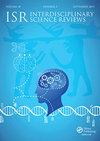Chinese folk music and its effect on human mathematical thinking skills
IF 1
4区 综合性期刊
Q3 MULTIDISCIPLINARY SCIENCES
引用次数: 3
Abstract
ABSTRACT This work aimed to study the short- and long-term effects of listening to Chinese folk music on mathematical thinking skills. The central research methodology was based on an independent assessment of respondents’ success in mathematics with reference to the amount of overall time spent listening to Chinese folk music. The results obtained for the experimental group reported a positive correlation between individuals’ mathematical skills and Chinese folk music listening duration, while the control group outcomes turned out to be practically time-independent. The s2 vale for the Student's t-test, used for the hypothesis testing, for each of the intervals of the mathematical tests ranges from 0.015 to 0.06 for the experimental group and from 0.01 to 0.19 for the control group. An alternative hypothesis about a direct correlation between passive listening to Chinese traditional music and mathematical thinking skills was confirmed using the independent two-sample Student’s t-test.中国民间音乐及其对人类数学思维能力的影响
摘要本研究旨在研究听中国民族音乐对数学思维能力的短期和长期影响。核心研究方法是基于对受访者在数学方面的成功程度的独立评估,并参考他们听中国民间音乐的总时间。实验组的结果显示,个体的数学技能与中国民族音乐的收听时间呈正相关,而对照组的结果实际上与时间无关。用于假设检验的学生t检验的s2值对于数学检验的每个间隔,实验组的取值范围为0.015至0.06,对照组的取值范围为0.01至0.19。采用独立双样本学生t检验证实了被动收听中国传统音乐与数学思维能力直接相关的另一种假设。
本文章由计算机程序翻译,如有差异,请以英文原文为准。
求助全文
约1分钟内获得全文
求助全文
来源期刊

Interdisciplinary Science Reviews
综合性期刊-综合性期刊
CiteScore
2.30
自引率
9.10%
发文量
20
审稿时长
>12 weeks
期刊介绍:
Interdisciplinary Science Reviews is a quarterly journal that aims to explore the social, philosophical and historical interrelations of the natural sciences, engineering, mathematics, medicine and technology with the social sciences, humanities and arts.
 求助内容:
求助内容: 应助结果提醒方式:
应助结果提醒方式:


